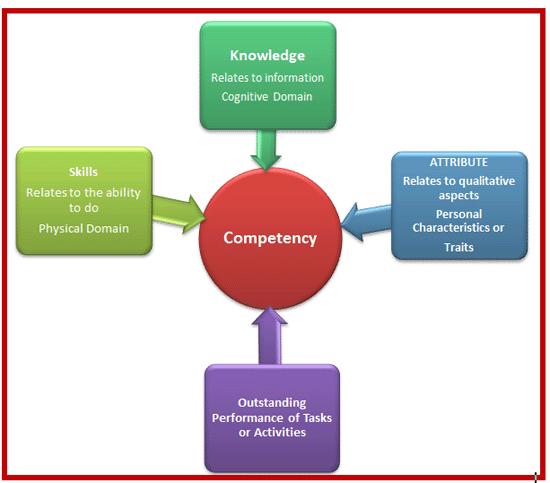What is Competency Based Assessment – Meaning and Important Concepts
April 3, 2025
 What is Competency Based Assessment – Meaning and Important Concepts
What is Competency Based Assessment – Meaning and Important Concepts
With the ever evolving and diversifying business challenges, the approach to the management of human resources has also undergone a paradigm shift. The competitive advantage achieved through technology, new products and information is short lived and vastly evaporating. The only distinguishing feature from the competition which remains, are the skills and contribution from the employees.…
 Competency Based Assessment and Organizational Processes
Competency Based Assessment and Organizational Processes
We have explored quite comprehensively the objective and process of competency based, now we come to the point where it would be interesting to explore how competency based assessment can be linked to organizational process and how it can influence the traditional methods. Let us begin with the starting step of the employee’s life cycle…
 Overview of Competency Framework and its Benefits
Overview of Competency Framework and its Benefits
A competency framework is a comprehensive structure which describes different competencies with its specific set of behavioral indicators and measurement criteria. Most of the organizations have their own distinct set of competency framework which is in alignment to their visions and mission and long and short term organizational goals. There are certain clear benefits of…
Competence has been long understood as a person’s ability or capacity to do a job. It was devised in the 1970s by the US Company McBer to identify the specific personal characteristics which resulted in effective and/or superior performance.
So, what exactly is the idea behind competencies ?
So, with this information we can proceed to defining Competency:
Competency includes the following elements:

There has been a lot of debate on the aspect that whether competencies are unique to a particular job or they are generic in nature. A little example would help the understanding, does ‘Management’ require the same set of behaviors to be demonstrated across the organization, job function, location etc by the managers or they differ across organizations, cultures, functions and settings
According to the MCBer research apart from identifying 12 characteristics related to managerial effectiveness, seven were found to be threshold competencies.
It is worth to spare a few minutes understanding what a threshold competency is:
It is summarized as a quality that a person needs in order to do a job; it might be as simple as being able to speak in the native language. It is different from the competency in a manner that it does not offer any aid in distinguishing superior performance from average and poor performance.
So, every job at any level in the organization would have a threshold competency, the bare minimum required to perform the job.
To gather a better understanding of competencies, it would be interesting to have a look at the work of some of the pioneers of the field. To begin one can always resort to the exemplary work done by McBer and the competency dictionary developed by him. Some of the generic competencies that were included in the list were:
There are several more, but looking at the above list, one can notice that these competencies are applicable across businesses and functions and hence called generic competencies.
The above leads to an obvious conclusion that there might be specific types of competencies as well, and surely competencies are also categorized into:
Leadership Competencies: Are managerial and cognitive competencies. E.g. analysis and problem solving, managing execution, adapt and learn etc.
Functional Competencies: Are those which are required within specific functions. E.g. knowledge of products, labor laws, inventory distribution systems, local food safety and handling regulations
The development of a competence is quite a comprehensive job involving several steps. It would be interesting to have a look at the basic structure regarding the development of a competence as given by Training Enterprise and Education Directorate of the UK Employment Department

So, with competencies becoming an integral part of Human Resource Management, it has helped the HR practitioners to create and share the understanding of factors leading to superior performance at the workplace. For the job incumbents, it creates a better understanding of their own roles and desired performance which in turn helps them to plan their own learning and growth.
Your email address will not be published. Required fields are marked *